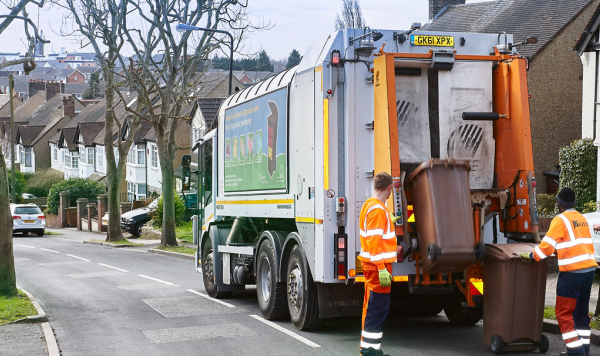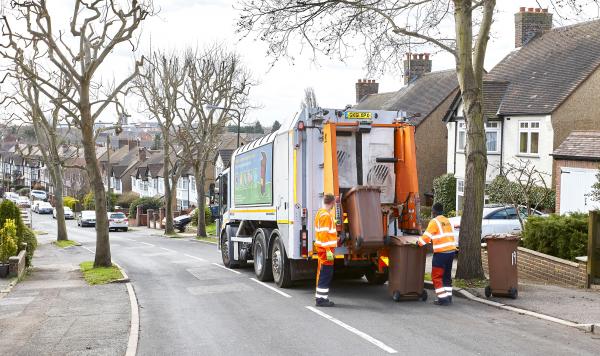Request
Deputation from David Twine, Islington Environmental Alliance
IEA’s deputation is to ask you, as the governing body of the North London Heat and Power Project, to commission a truly Independent Project Review (IPR) (‘cold eyes review’) of the NLHPP Project, especially the new Energy Recovery Facility. This Independent Project Review is essential to provide you with transparency of the project’s progress against plan, likely outturn cost and completion timescale. The cost of such a review is small, as it only involves 3 reviewers, takes 3 to 5 days and focuses on interviewing the key members of the project team.
They are common best practice for large infrastructure projects, such as in HM Treasury’s Three Lines of Defence assurance model (see link below). Suitable reviewers for this ‘Third Line’ review can easily be found from the government’s Infrastructure and Projects Authority (formerly the Major Projects Authority) or from the Institution of Civil Engineers or Association for Project Management.
Why does IEA ask for this Independent Project Review?
Firstly, NHLPP is a complex and large-scale project that is in difficulty. The forecast outturn cost has risen significantly to be on the limit of the budget, the MEP works started 13 months late; the delay costs are uncertain; and design work is not yet complete. Site establishment costs alone for this type of project can easily be £100,000 per week, which for a 13-month delay to completion is over £5m. You may be thinking all this cost will be borne by Acciona - but they probably have a different view! How these additional costs are apportioned in reality is rarely straightforward, and it would be unwise to assume NLWA won’t pick up any of these additional costs.
Secondly, robust assurance is an essential part of good project governance. Your governance needs an assurance framework that includes external independent scrutiny- for example the ‘Third line of defence’ of HM Treasury model. It is needed to ensure you are fully informed for the decisions you will need to make to achieve the best outcomes for the project. And to mitigate any tendency of the internal team to be over-optimist, suffer group think, have blind spots etc..
Thirdly, the report to this meeting (Section 3.6) states ‘a detailed audit review of Acciona’s engineering, procurement, and construction (EPC) activities to date is under way by an independent contractor, Arup.’ We agree this work is essential for the NLWA project team, but importantly it is incorrect to say it is independent. Arup have been one of NLWA’s main delivery partners since the start of the project, providing project management and technical services.
So, in the assurance model I referred to earlier it is a second line of defence internal activity, rather than the external independence of the third line of defence.
What are our credentials for making this ask of you?
I worked in major project construction for 40 years, with the last 15 years being in project management roles. I became a Fellow of both the Institution of Civil Engineers and the Association for Project Management. I retired from being a Director at Arup after working for them for 39 years. I have been subjected to Independent Project Reviews, as well as undertaken them, so I have experienced their value first hand.
To summarise:
You should adopt best practice project assurance, and avoid the risk of making ill-informed decisions on this large-scale complex project, by commissioning an external Independent Project Review - the findings of which you can consider alongside the findings of NLWA’s internal 12 week audit review by Arup.
Considering the discussion at the meeting, I’d be grateful for details of the following as part of your written response:
- The governance arrangements for the NLHPP Project
- The assurance framework that is being used, including the number and types of ‘lines of defence’, and whether they are internal or external
- How many reviews of the project have been undertaken to date, and by whom, as part of the project’s governance.
- The written scope of the independent Arup review
- Whether the ‘independent’ Arup review means:
- it is a team that is additional to the current team, but reporting to the existing Arup Director for the project, or
- the new team is working for a different Arup Director with an ethical wall between the new team and the existing team.
Response
Dear Mr Twine,
Thank you for taking the time to address North London Waste Authority (NLWA) at the meeting on 13 February 2024. You raised some valuable points for consideration, and we appreciate the perspective you provided in line with your professional background.
In addition to your original deputation, I have addressed supplementary comments and recommendations you raised via email on 14 February and 25 February. I believe the below will provide further clarity into the audit review being undertaken, the thorough oversight and governance in place on the project, and the steps being taken to guide future decision-making.
It is due to NLWA’s robust contract management of Acciona that programme delays have been identified early. However, as Acciona has not yet been able to confirm that it can deliver on schedule, NLWA has instructed an independent audit review to verify our understanding of the current position and underpin future decisions.
As you stated in your deputation, it is correct that an independent review is best practice, and that it is carried out by experts. Our review of the engineering, procurement, and construction activities to date is being carried out by a specialist team from Arup, who are fully independent from the project team. This review is allowed in the contract and will aim to provide full access to members of the project team, contractors and sub-contractors, and all project documentation.
A detailed review of this nature can take 12 weeks – the three-to-five-day review suggested in your deputation would not provide the level of detail required to inform decision making.
Governance arrangements for the North London Heat and Power Project
The Authority’s governance is set out in Standing Orders. Standing Orders include the Authority’s duties and powers (Section A2), the matters which must be decided by the Authority itself (Section B, Appendix 1), the matters which are delegated to the Programme Committee (also Section B, Appendix 1) and the delegated authority to officers (Section B, Appendix 2).
Management of the project aligns with this overarching governance. These include internal structures and responsibilities to enable the Programme Director to carry out their responsibilities with appropriate expert advice, project support and challenge.
While the project is to deliver assets which are/will be owned by NLWA, and therefore NLWA is the client for all relevant contracts, the Authority is funded by a levy on constituent boroughs, and arrangements exist to enable boroughs to monitor, support and challenge the project.
The overall structure means that there are clear accountabilities and decision-making arrangements, while also ensuring appropriate levels of check and challenge to ensure that the project is being delivered in the best interest of north London. You will be aware that progress is publicly reported on a frequent basis, covering not only direct delivery of construction but also safety and environmental delivery and the actions to deliver social value in communities in north London.
Assurance framework and lines of defence
A stage gate process is applied for project delivery. As you will be aware, a series of new assets have already been delivered under the NLHPP including development of the laydown area, new access roads, sewer diversions and the waste management facilities which came into use in 2024. These have all been subject to appropriate gate review assessment. The stage gate assurance framework has three levels of independent review applied to project elements depending on capital value. The highest level brings in an external party to review readiness to progress to the next stage, reporting to the Programme Director.
Reviews undertaken to date, as part of the project’s governance.
The project is subject to a regular and frequent process of reporting, discussion and challenge. For the energy recovery facility itself, in line with recommended practice, stage gate reviews were conducted in relation to procurement readiness and contract award. The outcomes of those reviews were incorporated into reports to Authority meetings to inform Member decisions.
Details of the independent review
The review will be completed by a team from Arup separate and distinct from those contracted to provide Programme Office support for the project.
Officers have reported the delays to the delivery of the energy recovery facility which ACCIONA have been experiencing. As you would expect, the project team has been challenging and prompting ACCIONA to increase delivery certainty and put assurance and resilience around their programme planning. The audit represents a further escalation to enable the client team to have the best understanding of the situation.
The review includes a comprehensive three-month audit on behalf of NLWA to provide enhanced oversight of the EPC contractor, project progress to date and planning through to completion. This will focus on evaluating the principal areas of project delivery through audit, evaluation and recommendations.
The scope of work specifically includes:
- Contractual compliance
- Project management
- Engineering and construction
- Risk management
- Sustainability and environmental compliance
- Industrial relations
- Design gap assessment
- Sub-contracts and procurement assessment
- Procurement readiness review
- Project schedule review, gap analysis and risk evaluation.
The audit will include scrutiny of the EPC contractor’s view of the current state of the project and the scope required to complete the project.
I hope this assures you that the scope of the audit will cover the issues you suggested at the Authority meeting and subsequent emails. Subject to the findings and recommendations of the audit, NLWA may consider further reviews to underpin decisions moving forward. Decisions on the future of the project are made by Members, in public meetings as outlined above.
Your recommendation of a former colleague to provide additional oversight is noted. We do not feel this is currently necessary as the scope of the audit includes a very thorough review of the project, and the audit team is fully independent from the project delivery team.
Thank you again for taking the time to share your recommendations and comments for the audit review, and your ongoing interest in the project.




